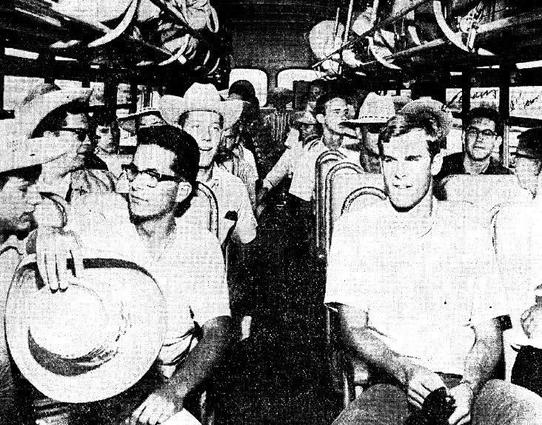via Facebook: https://www.facebook.com/share/p/16eDx3zoA2/
NPR - The year red-blooded patriotic American high-school jocks replaced migrant farm workers!
The year was 1965. On Cinco de Mayo, newspapers across the country reported that Secretary of Labor W. Willard Wirtz wanted to recruit 20,000 high schoolers to replace the hundreds of thousands of Mexican agricultural workers who had labored in the United States under the so-called Bracero Program.
(1/15)
